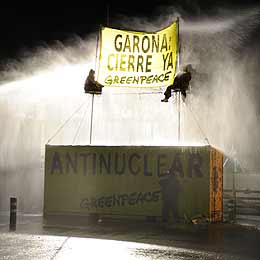In just 6 years building work on Spanish coastline has increased by 22%A bird’s eye view of the Spanish coastline from satellite has revealed the true extent of the destruction of natural areas on the Spanish coastline, above all in the Mediterranean. As part of a periodic study carried out by the National Geographic Institute for the Spanish government land changes have been analyzed and compared to the results of the last study carried out in 2000. According to the results of the most recent study the built up area on the Spanish coastline has increased by 21.85% in just 6 years which is twice the rate compared to the period 1987-2000.
Carolina de Carvalho, a reasearcher for the Observatory for Sustainability in Spain for the Ministry for the Environment and the University of Alcalá (Madrid) has announced some of the results of this latest study in an advance report. Although the latest study is not as accurate as other more recent ones the biggest advantage it has is that similar studies were carried out in 1990 and again in 2000. The study called Corine Land Cover, includes the whole of Europe and is the principal source used to measure the rate of construction in areas which previously had no buildings.
The study has found that in the space of just 6 years built up areas have increased by 23% in the Mediterranean and by 19% in the Atlantic (including the Bay of Biscay, Huelva and Cádiz). Figures for the Canary Islands are not available.
The rate of the destruction on the coastline has doubled with respect to the results for 1987-2000 when building work ate up 73,000 square metres a day. Between 2000 and 2005 this figure almost doubled to 140,044 square metres a day. Although there has been less building work in the Atlantic compared to the Mediterranean the amount of building work here has also doubled.
Experts have pointed out that building work literally came to a stand still between 1992 and 1997 which partly explains why the results of the most recent study appear so spectacular. However, the recent property boom is partly to blame for the destruction of one of Spain’s most precious and non renewable resources – its coastline. At present 27.5% of the Mediterranean is covered by buildings when just five years ago only 22% was built on and in 1987 this figures drops further to just 16%.
If the current rate of construction continues until 2071 the whole of Spain’s coastline will consist of built up areas for the first 2 kilometres.
According to the advance report by the Observatory for Sustainability, in Valencia and Huelva the rate of construction along the coastline has increased by 50%, in Murcia built up areas have increased by 58%, in Alicante 32% and in Castellon a massive 134%.
Furthermore, according to Carvalho Spain has created a ‘wall of cement along its coastline which is empty for most of the year’ – referring to the number of second homes along the Spanish coastline.
In a statement Juan López de Uralde, the director de Greenpeace, said that the situation of the Spanish coastline has demonstrated that the ‘Ley de Costas’ passed in 1988 which was intended to protect the it has not worked properly. He added that people said that the Spanish coastline had been destroyed in the 70’s with the construction of La Manga del Mar Menor or Benidorm, but in fact that this was false and that the rate of construction now is much higher than in the past’.
Carlos Peña the sub-Director for Sustainability for the Ministry of the Environment has revealed that one of the government’s plans to rescue the coastline is to buy up all the agricultural area along the first 500 metres of the whole of the Mediterranean coastline. However, the government is only prepared to pay very low prices without taking into account the prospect of revaluation at a price of just 1 or 2 euros per square metre.
The Ministry for the Environment estimates that there are around 1,500 hectares which have not yet been declared suitable for building on and is preparing a plan to buy up the land at a cost of around 150 to 300 million euros – although the government is aware that most land owners are not interested in their offer.
The Ministry for the Environment is also preparing a strategy of sustainability which includes plans to pull down buildings and expropriate land in order to help preserve the coastline. Amongst some of the proposals that regional governments have liked the least are the intentions of the government to put a stop to the construction of more marinas.
According to Greenpeace in 2008 alone there were 137 new plans for new marinas or industrial ports along the Spanish coast.







